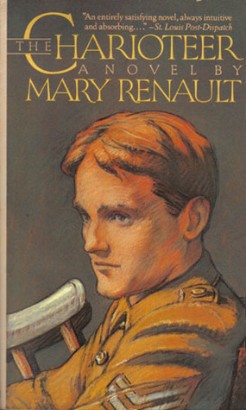It was the first time he had ever heard the clock strike ten at night. If he had been asleep and waked to hear the strokes, it would have been different, a small manageable fragment broken off the unknown hugeness of night, from somewhere in the middle. He would have been a little uneasy, perhaps, in his waking solitude, and, if he heard anyone stirring, would have found something legitimate to call out for, such as a drink of water. Only babies called out about nothing. The ten months which had passed of his fifth year felt like at least half his remembered life, and he was used to his responsibilities.
Tonight was unique. Tonight he had not been to sleep at all, and it was ten.
Seven o'clock was familiar and domesticated. With luck and good management, at seven his mother might be sitting on the edge of his bed with an unfinished story. Eight was unusual, and associated with trouble: having been punished, or being sick. Nine was the wild outpost of an unknown continent. Ten was the mountains of the moon, the burial-place of the elephants: white on the map. He lay staring with round birdlike eyes at the dim lapping of light on the ceiling, incredulous of the journey he had made alone.
Outside a man passed the house, whistling. The noise had an absolute foreignness, like the note of a jungle bird. It had no link with humanity; it was simply a mysterious feature on the face of night. Somewhere, so far off that in daytime one never heard it, a line of railway trucks was shunted together. The metallic clangs, melancholy with distance, not quite harsh and not quite musical, made a loose chain of sound, then stopped inconclusively, leaving the ear suspended and waiting.
If one sat up as long as an hour past bedtime, except on Christmas and birthdays, one would be ill. Laurie, who had had this explained to him many times and accepted it as incontrovertible fact, inferred from it that after three hours, one would probably die.
Separated from life by this vast stretch of solitude, he would not have been surprised to find himself dying any minute. But first an angel would come. Grannie, who had been in heaven for a year, was the only one personally known to him, so it would probably be she. Laurie didn't remember her very well, and thought she would have altered a good deal. She would pick him up out of bed (Grannie had had cold hands, he remembered), and fly with him out of the window, up to heaven. He looked at the space between the curtains. The sky was vast, empty, and quite black.
Last time he had seen Grannie she had been in bed, thin and yellow and absent, with a sweet sick smell. He pictured her thus, wearing her embroidered flannel nightgown with the addition of wings; then as a younger lady like the other angels, with long golden hair floating behind her and a thinner nightgown, just like all the rest. Neither of these pictures soothed, nor--and this was the worst--wholly convinced him. In this enormous vacuum, he felt a crack open in the warm pearly shell of belief. He knew that dying was being fetched by the angels and taken to heaven; but, suddenly and terrifyingly, he could no longer feel it. What he felt was that it would simply grow darker, not only in the room, but also inside him; and that his mother would not be there.
